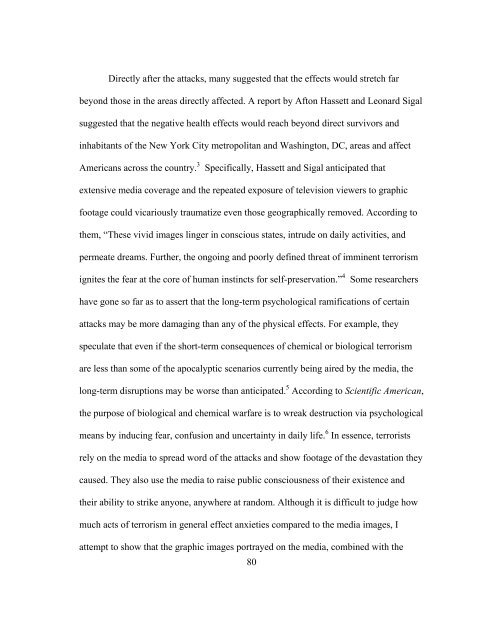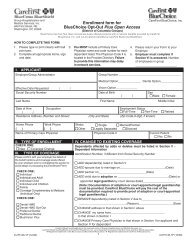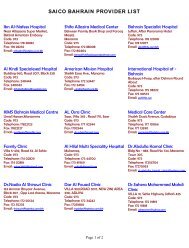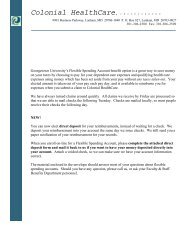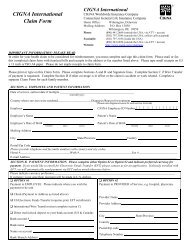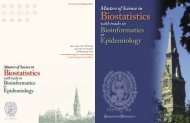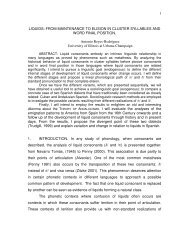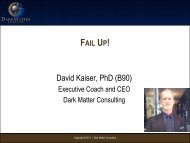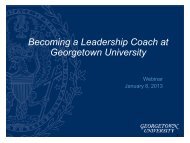Media Induced Fear and Anxiety - Georgetown University: Web ...
Media Induced Fear and Anxiety - Georgetown University: Web ...
Media Induced Fear and Anxiety - Georgetown University: Web ...
You also want an ePaper? Increase the reach of your titles
YUMPU automatically turns print PDFs into web optimized ePapers that Google loves.
Directly after the attacks, many suggested that the effects would stretch far<br />
beyond those in the areas directly affected. A report by Afton Hassett <strong>and</strong> Leonard Sigal<br />
suggested that the negative health effects would reach beyond direct survivors <strong>and</strong><br />
inhabitants of the New York City metropolitan <strong>and</strong> Washington, DC, areas <strong>and</strong> affect<br />
Americans across the country. 3 Specifically, Hassett <strong>and</strong> Sigal anticipated that<br />
extensive media coverage <strong>and</strong> the repeated exposure of television viewers to graphic<br />
footage could vicariously traumatize even those geographically removed. According to<br />
them, “These vivid images linger in conscious states, intrude on daily activities, <strong>and</strong><br />
permeate dreams. Further, the ongoing <strong>and</strong> poorly defined threat of imminent terrorism<br />
ignites the fear at the core of human instincts for self-preservation.” 4 Some researchers<br />
have gone so far as to assert that the long-term psychological ramifications of certain<br />
attacks may be more damaging than any of the physical effects. For example, they<br />
speculate that even if the short-term consequences of chemical or biological terrorism<br />
are less than some of the apocalyptic scenarios currently being aired by the media, the<br />
long-term disruptions may be worse than anticipated. 5 According to Scientific American,<br />
the purpose of biological <strong>and</strong> chemical warfare is to wreak destruction via psychological<br />
means by inducing fear, confusion <strong>and</strong> uncertainty in daily life. 6 In essence, terrorists<br />
rely on the media to spread word of the attacks <strong>and</strong> show footage of the devastation they<br />
caused. They also use the media to raise public consciousness of their existence <strong>and</strong><br />
their ability to strike anyone, anywhere at r<strong>and</strong>om. Although it is difficult to judge how<br />
much acts of terrorism in general effect anxieties compared to the media images, I<br />
attempt to show that the graphic images portrayed on the media, combined with the<br />
80


